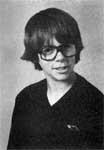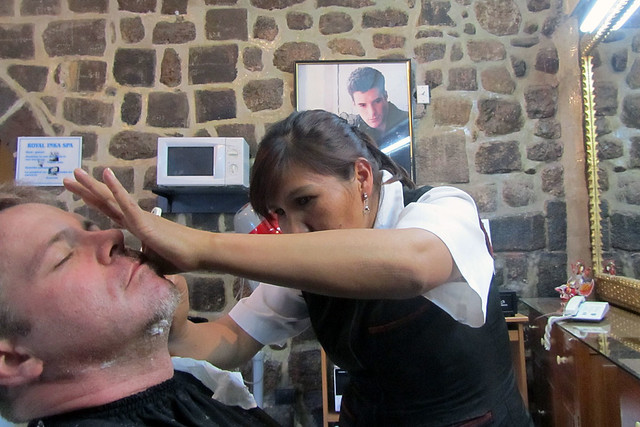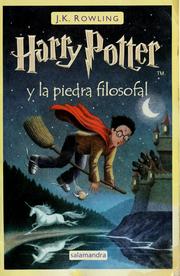When I was younger, I made fun of self-help books. I thought they were cheesy. They didn’t seem to have any utility for my life. But now that I’m older, I’m also a little wiser. I’ve discovered that at the right time and place, certain self-help books can be valuable.
 My favorite book of this type is Harry Browne’s How I Found Freedom in an Unfree World, a 38-year-old treatise on personal responsibility. This book changed my life.
My favorite book of this type is Harry Browne’s How I Found Freedom in an Unfree World, a 38-year-old treatise on personal responsibility. This book changed my life.
But last winter, as I was working through some of the heavier things from my divorce, I found solace in two other books: The Four Agreements by Don Miguel Ruiz and The Power of Now by Eckhart Tolle. These are just the sorts of books I used to mock, but I’ll admit that I found they held profound truths for where I was in life. They still do.
These, for example, are the four agreements (with a bit of rephrasing by me):
- Be Impeccable With Your Word. Speak with integrity. Say only what you mean. Avoid speaking against yourself or gossiping about others. Use the power of your word in the direction of truth and love.
- Don’t Take Anything Personally. Nothing others do is because of you. What others say and do is a projection of their own reality, their own experience. When you’re immune to the opinions and actions of others, you won’t be the victim of needless suffering.
- Don’t Make Assumptions. Find the courage to ask questions and to express what you really want. Communicate with others as clearly as you can to avoid misunderstandings, sadness, and drama.
- Always Do Your Best. Your best is going to change from moment to moment; it will be different when you are healthy as opposed to sick. Under any circumstance, simply do your best, and you’ll avoid self-judgment, self-abuse, and regret.
The fourth agreement wasn’t really a problem for me. I always try to do my best. And the first one wasn’t really an issue either. Yes, I fib now and then, and yes, I can gossip at times. But mostly I try to steer clear of these things, and I generally try to tell the truth (I’m a horrible liar).
But the second and third of Ruiz’s principles? Well, those are problems. I do have a tendency to take things personally, and I do often make assumptions. For all of 2012, though, I’ve been working hard to change both of these habits. In fact, I’ve noticed that if I’m feeling unhappy, it’s usually because I’m taking something personally or I’m making assumptions.
Or maybe I’m unhappy because I’m not present in the moment. I have a rich internal life, and at times I can get lost in the web of my own thoughts. This isn’t a bad thing necessarily. This rich internal life is the source of my imagination. It’s helped me succeed as a writer. But it becomes problematic when I’m stuck in my head instead of mentally present with my friends. (And being stuck in my head sometimes makes it tough for me to answer questions or to tell stories.)
That’s why I’ve also spent this year trying to remind myself of the “power of now”, as Eckhart Tolle calls it. Here’s my summary of his philosophy:
- Be present in the moment. Accept life for what it is, without labels or judgment. Yield to events; don’t block them. Go with the flow. Nothing exists outside the present moment: Don’t dwell on the past or worry about the future. Improve the quality of the here and now.
I love that last bit: Improve the quality of the here and now. How can I make today better? How can I make this moment better? That’s what I need to focus on in my life. And I have been, for the most part. Sometimes I forget to do this, and that can lead to unhappiness — for myself and others. But I’m committed to making this a way of life.
Finally, here are a couple of other pieces from my personal philosophy. I call the first bit “Michelle’s Law” after the friend who helped me articulate the idea:
- Create your own certainty. Don’t allow your well-being to be dependent on the choices of others. Be proactive.
 There’s a lot contained in those few words. I’m instantly reminded of Harry Browne (whom I mentioned earlier) and of Ayn Rand. Both advocate living in such a way that your health and happiness aren’t dependent on the actions of others. Obviously, you can’t be completely disconnected (nor would you want to), but to the degree that you can act independently, you have greater control over your future happiness.
There’s a lot contained in those few words. I’m instantly reminded of Harry Browne (whom I mentioned earlier) and of Ayn Rand. Both advocate living in such a way that your health and happiness aren’t dependent on the actions of others. Obviously, you can’t be completely disconnected (nor would you want to), but to the degree that you can act independently, you have greater control over your future happiness.
Speaking of happiness, that brings me to my own maxim, something I call “J.D.’s Law”. If you’ve read me for a while, you know that I consider personal happiness one of the highest ideals (and perhaps the highest ideal). In this way, I’m similar to Aristotle. In fact, I very much like Aristotle’s conception of happiness, which he called eudaimonia. To him (and to me), happiness wasn’t just about hedonistic pleasure. It was also about pursuing excellence and living in a way that is congruent with personal beliefs. (I think of his eudaimonia as being similar to Csíkszentmihályi’s flow.)
So, my fundamental law is this:
- Choose happiness. Do work and play that brings fulfillment. Spend time with people that build you up, not those who bring you down. Strip from your life the things that take time, money, and energy, but which do not bring you joy. Focus on the essentials.
My personal philosophy is constantly developing. It is not fixed. As you all know, I’ve changed much in the past twenty or thirty years. I’m certain I’ll change more in the years I have left on this earth. Ultimately, however, my aim is to be the best person I can be — now and in the future.

 Things changed, though, when I got to junior high school. Gradually I became aware of a certain social hierarchy. What’s more, I became aware that my friends and I were at the bottom of this social hierarchy.
Things changed, though, when I got to junior high school. Gradually I became aware of a certain social hierarchy. What’s more, I became aware that my friends and I were at the bottom of this social hierarchy.
